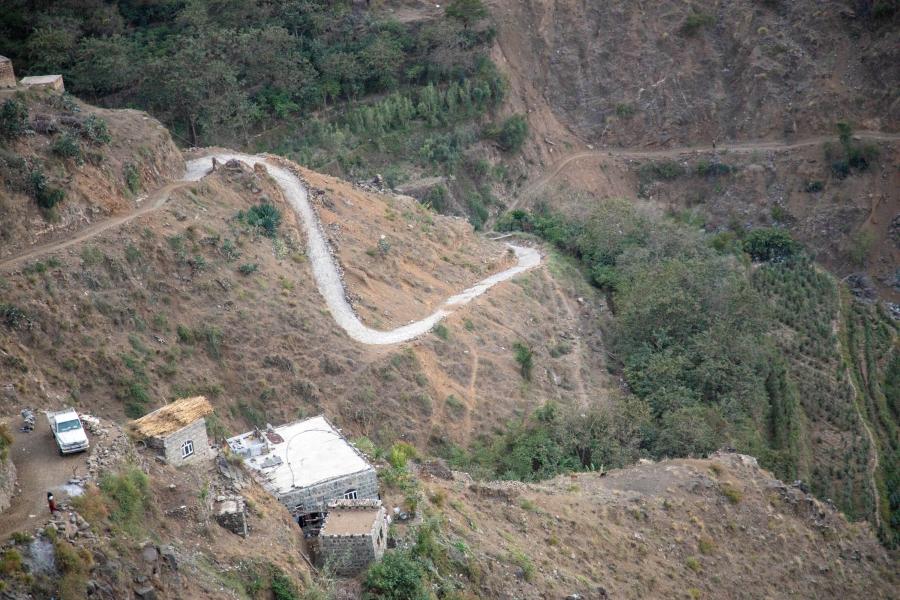UNDP Yemen: Building pathways to prosperity: A road to opportunity in Al-Gharbi, Yemen
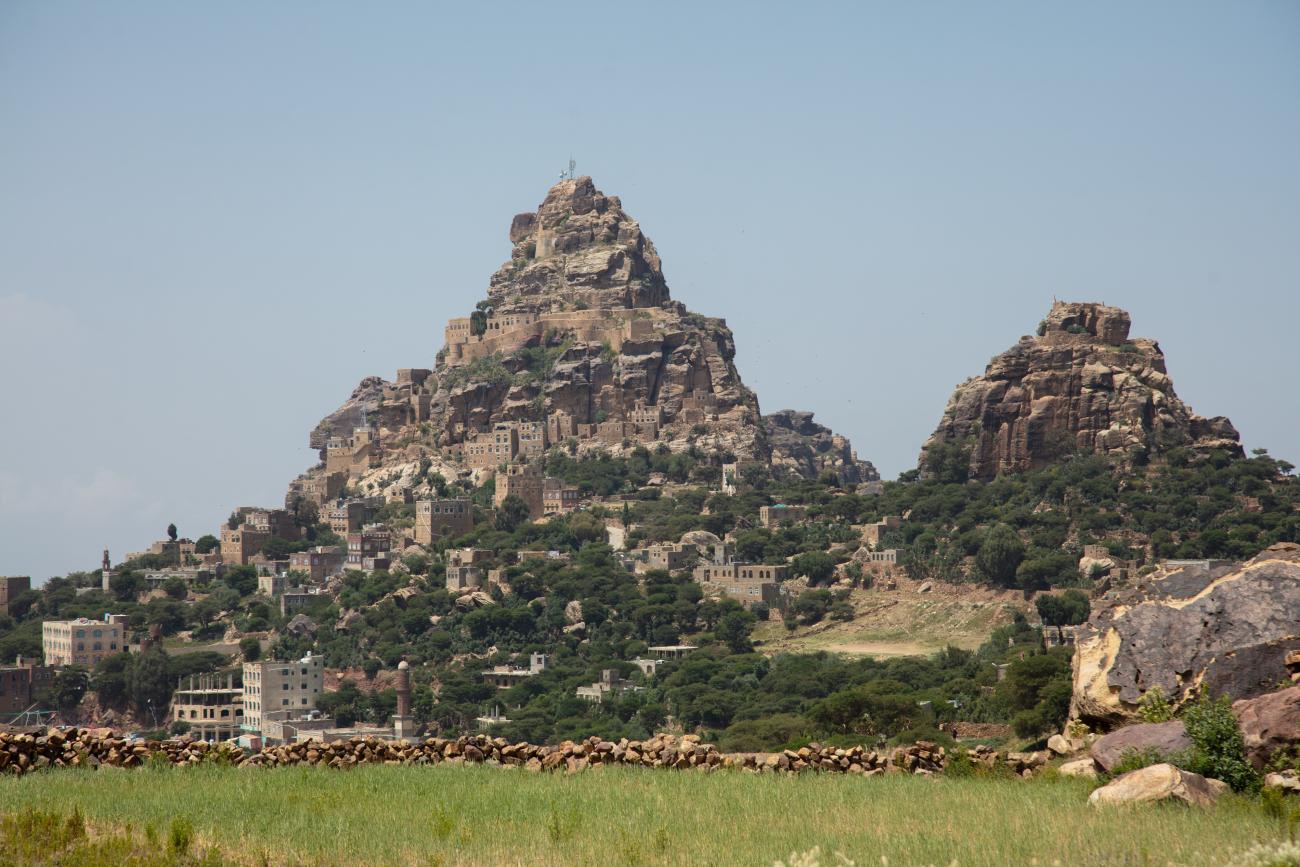
--
"In our hearts, this road is more than concrete; it's the path we dreamt of, bringing us closer to the world," says Fatima, a teacher in Al-Tawilah District, Al Mahwit Governorate.
17 May 2024
Nestled between the breathtaking rocky hills of north-west Yemen, Al-Tawilah District in Al-Mahwit Governorate is a testament to the resilience and beauty of humanity and natural history. Al Mahwit Governorate captivates with its stunning valleys and harsh terrain, a beautiful yet challenging home for its 402,000 residents. This contrast of serene landscapes and daily struggles is evident in the lives of those relying on agriculture and small businesses for their livelihoods.
"In this rugged beauty, we find the strength to overcome the challenges we have been facing," shares Fatima, a teacher in Al-Tawilah District.
In Al-Gharbi, a sub-district of Al-Tawilah, a recent project has initiated a transformation to support challenges associated with poor road conditions, which have negatively affected mobility for residents. Local resident Saleh lost his wife during childbirth due to delays caused by the state of the road. His sorrow, which has deeply touched the community, has spread an urgent need for change.
"The road presented our biggest obstacle, offering us grief far more than assistance. Had it been in a better state, my wife might still be with us," explains Saleh.
His reflections amplify the community's collective plea for essential infrastructure upgrades, underlining the necessity for a safer and more reliable route.
Paving 4,000 meters of the Al-Gharbi Road was supported through UNDP Yemen’s Supporting Resilient Livelihoods, Food Security, and Climate Adaptation in Yemen Joint Programme / ERRY JP III, in collaboration with local partner the Life Makers Meeting Place Organization (LMMPO) and funded by the European Union and Government of Sweden. The project was a community effort, involving local workers, including 40 women, who received cash-for-work and were trained in road maintenance.
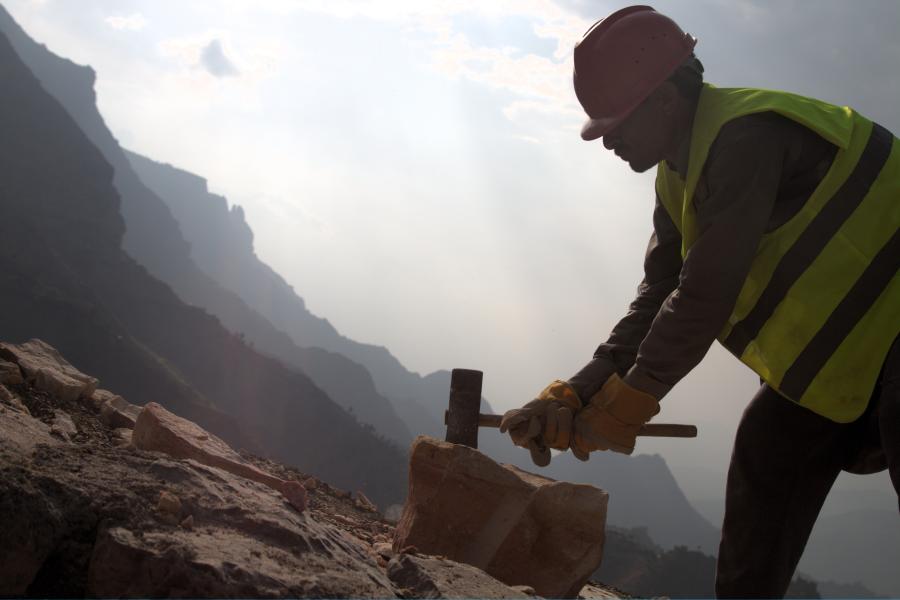
Mohammad, the village's sole pottery maker, participated in the project.
"We saw hope being built, one stone at a time. This road is our collective dream becoming a reality," Mohammed proudly states, emphasizing the communal effort behind the initiative.
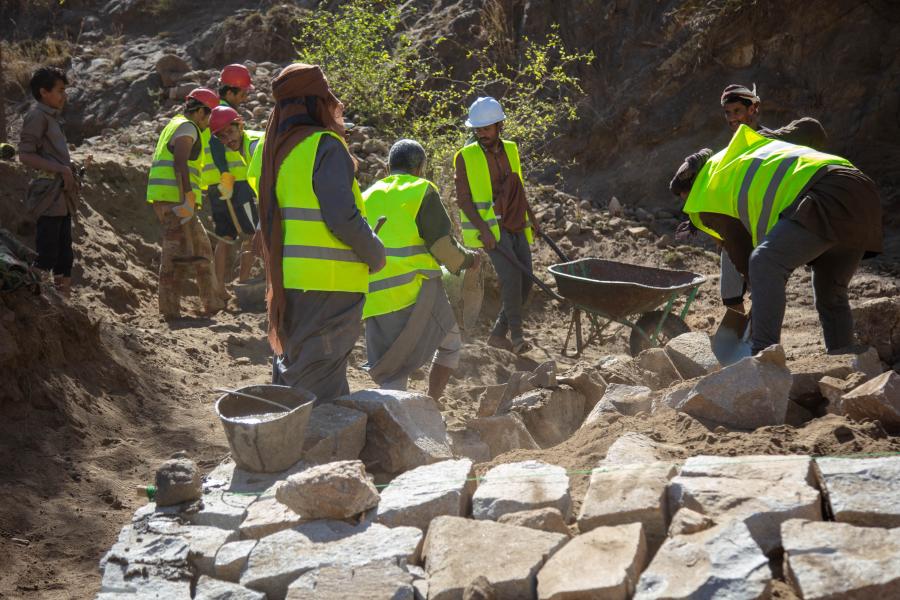
The new road brought significant changes, connecting the community with basic services and reducing travel-related risks. For Mohammad, the new road has been particularly impactful for his business. Previously, he faced significant losses, with about 30% of his pottery breaking during transport due to the poor road conditions. Now, he can deliver his products to the city without damage, resulting in increased earning and less waste. This change has not only boosted his business, but also his spirits.
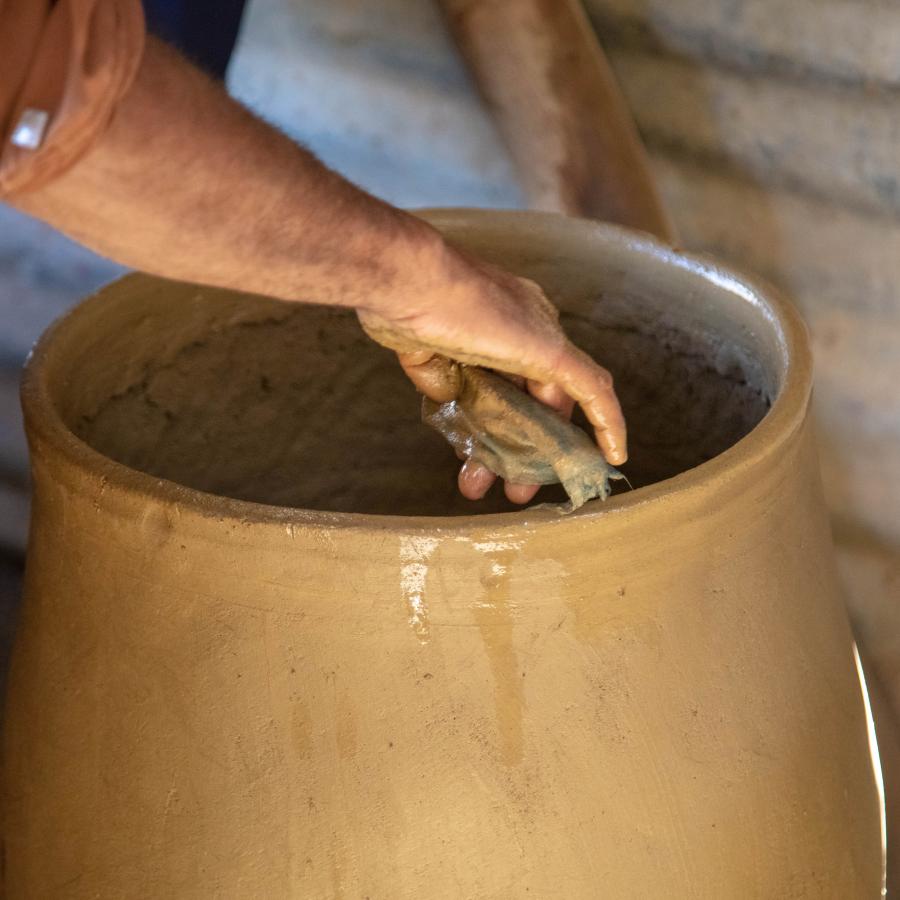
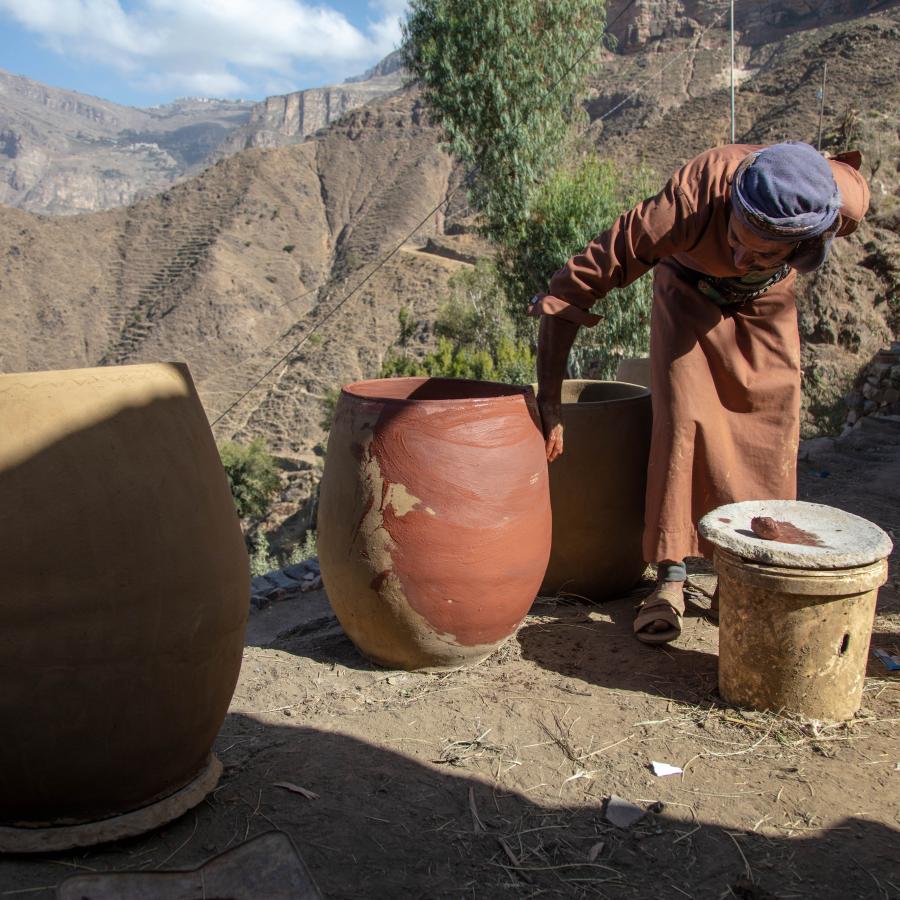
"Before, I used to lose nearly a third of my work on that treacherous road. Now, my pottery arrives safely, and my income has improved. This road is our collective dream turned into reality, and seeing it come to life has filled me with happiness," says Mohammed.
The road project transformed Al-Gharbi, encouraging further investment in infrastructure and empowering the community, showcasing the strength of working together.
Yahya, a local youth leader, highlights new possibilities for further growth, saying, "This is just the beginning. Working together has shown us the heights we can reach; now, we aim even higher."
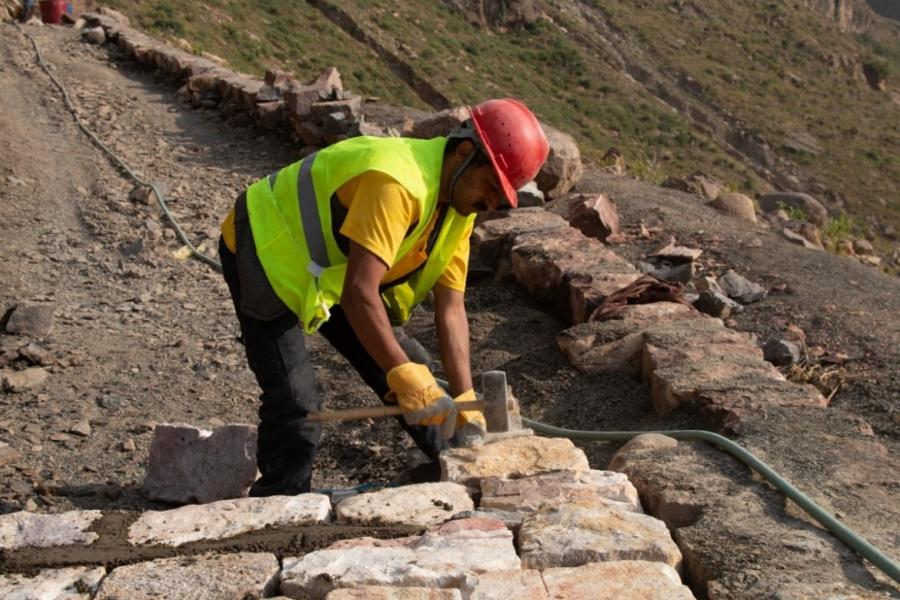
Local teacher Fatima summarizes the community's sentiments, saying, "Walking on this new road, we carry our ancestors' hopes and our children's dreams."
The Al-Gharbi road paving is part of broader efforts under the ERRY III Joint Programme. Collaboration between four United Nations agencies—the United Nations Development Programme, World Food Programme, Food and Agriculture Organization of the United Nations, and the International Labor Organization—has supported boosting livelihood opportunities, food security, and resilience in several governorates across Yemen. This initiative has been made possible through generous support from the European Union and the Government of Sweden, highlighting the impact of global cooperation in addressing local challenges.
